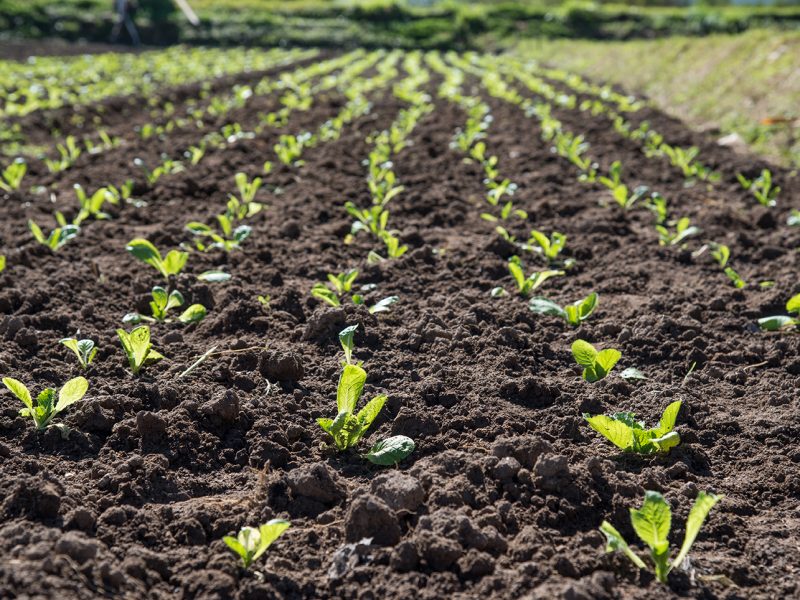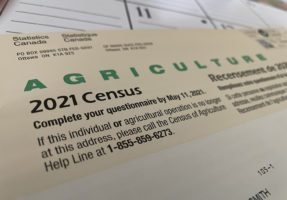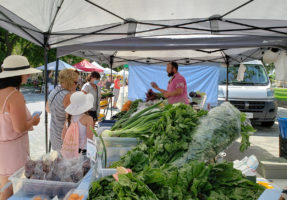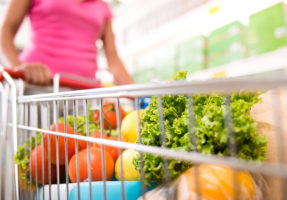DELTA – Kale was the fastest-growing vegetable in BC by acreage in 2022, according to Statistics Canada data that shows field vegetable acreage in the province is on the decline.
BC growers tended 13,146 acres of vegetables in 2022, according to Statscan’s annual report on fruit and vegetable acreage, released February 16 (potatoes and greenhouse crops are considered separately). This was down 7% from a year earlier and 4% from the five-year average.
But within those numbers, kale took top-spot as the fastest-growing crop, with acreage rising 55% versus 2021 and 36% over the five-year average to 149 acres.
The rise of kale is part of greater interest in leafy greens, with lettuce ranking second among the fastest-growing vegetables by acreage. Growers devoted 598 acres to lettuce in 2022, up 45% from 2021 and 20% higher than the five-year average.
The strength of leafy greens relates not only to a favourable climate but also market opportunities.
The province’s most lucrative crops on a per-acre basis are spinach, at $28,051 per acre, followed by kale at $21,932 per acre.
Its fast-growing counterpart, lettuce, generated farmgate receipts of nearly $9.5 million for growers last year, or more than $15,855 an acre. This puts it ahead of the top-grossing crop in BC, cabbage, which generated farmgate receipts of $13.6 million last year, or $13,953 per acre.
The appeal has large growers like Quebec-based VegPro expanding lettuce production in the Okanagan to serve regional markets and compete against product from California. Lettuce also commands a premium at farmers markets, prompting many smaller growers to plant what can be a year-round crop in many of the province’s more temperate regions, providing steady cash flow.
But leafy greens remain small potatoes when it comes to the province’s major field vegetables.
Potatoes are large enough to warrant their own report, with 5,200 acres planted last year. Challenging conditions last spring cut seeding by 1,100 acres from a year earlier, and a similar story played out for sweet corn, the second most-planted field vegetable by area with 1,858 acres in 2022. This was down 21% from the five-year average, but nevertheless gave it a dominant position over other veggies.
Peas, primarily a processing crop, ranked second with 1,370 acres, up 16% from a year earlier and 28% over the five-year average.
With few exceptions, growers of all vegetables saw better prices last year, with farmgate receipts totalling $119.9 million, up 10% from a year earlier. This marked a sharp increase from the five-year average, pointing to the effects of higher input costs and inflationary pressures on what growers had to charge.
Higher revenues for fruit
Statscan delivered similarly good news with respect to BC fruit production. All crops except apples and blueberries saw farmgate revenues increase last year, for total receipts of $454.7 million. Blueberries accounted for the largest share, with $156.6 million in sales despite a 1% drop in production. Sweet cherries ranked second, with more than $80 million in sales while grapes came in third with nearly $75 million in sales despite a 7% decrease in tonnage.
But the fastest-growing crops were raspberries and pears, crops that have both seen significant investment in recent years geared towards renewal and greater efficiencies.
Raspberries saw marketed production rise 45% to 5,290 tons for a 50% increase in farmgate receipts to $17.2 million. In a promising sign, revenues were up 9% over the five-year average even as production remained 14% below the five-year average. This points to plenty of room for the sector to catch up as provincial replant funding supports the ongoing renewal of fields following years of poor weather and discouraging returns.
Kelowna-based Day’s Century Growers investment in a state-of-the-art packing line in 2019 gave it the capacity to handle all the pears grown in BC, and Statscan’s numbers point to a parallel increase of pear production in the province.
Pear tonnage increased 17% last year to 5,107 tons. While this was down 3% from the five-year average, farmgate revenues rose 25% to $5.95 million, indicating a higher price per ton.
Despite strong revenue growth, just two crops saw a significant increase in bearing acreage last year. Sweet cherries increased 7% to 5,623 acres, and raspberries increased 6% to 1,925 acres.






 AgriStability deadline extended
AgriStability deadline extended